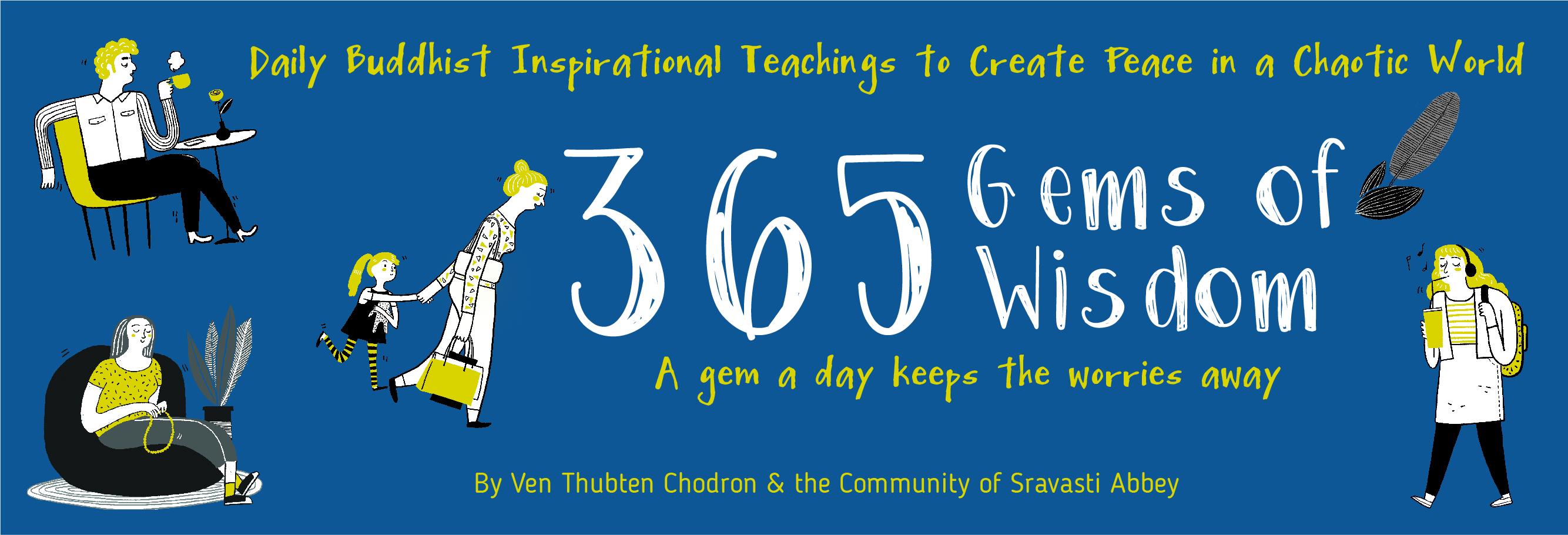November 19 : Our Words Can Keep Us from Joyous Effort
Joyous effort, or enthusiasm as it is sometimes translated from the Tibetan term “sundro”, is important for our Dharma practice as well as our regular life practice. With joyous effort, the mind is in a good mood, is eager and ready to go, and is happy about what you are doing. You feel satisfied after you have done something and rejoice that you have created virtue and have something to dedicate. You are happy to keep going, but also know how to pace yourself and when to rest.
In contrast, we frequently hear people in modern society say, “I’m overwhelmed.” We seem to think we know what we mean when we say this, but do we ever dissect how it feels to be overwhelmed or where the feeling comes from? Is it the situation that is overwhelming, or is it just the mind saying, “I feel overwhelmed?” I know for myself that as soon as I say, “I feel overwhelmed,” the whole paradigm shifts to, “It is all too much, do not ask anything more from me, I cannot do it. Stop pushing and leave me alone, thank you very much.” It is interesting how I have plenty of energy to stand my ground, dig in my heels, and have a pity party, but no energy to do whatever it is that I feel overwhelmed by.
Another popular expression is, “I need my own space”. Do we mean physical space or mental space? Can somebody else give us mental space, or do we need to give ourselves mental space? We all want “my space” but what exactly is this? Reflecting in this way helps us to understand our mind better, and allows us to see how using certain words and expressions changes our whole experience. In this way, our experiences are not coming from the outside, but rather the words we use to describe them. Therefore, you can have a situation in which one person feels overwhelmed, another person needs his own space, and another person has joyous effort. It is good to think about which words would accompany joyous effort.
“365 Gems of Wisdom” e-book is out now!

